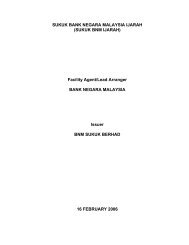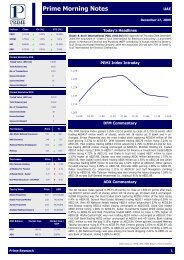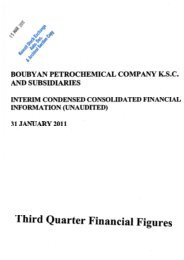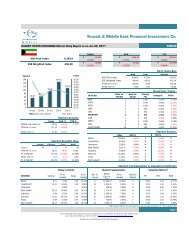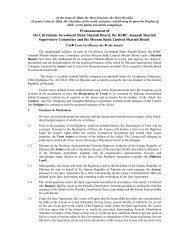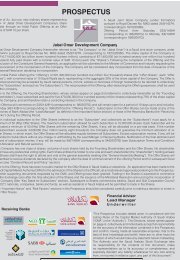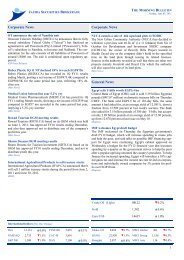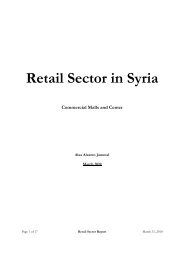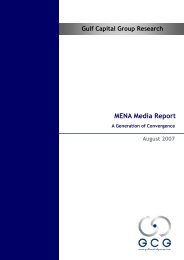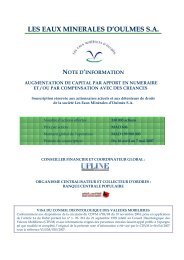You also want an ePaper? Increase the reach of your titles
YUMPU automatically turns print PDFs into web optimized ePapers that Google loves.
10 Libya<br />
BP is embroiled in accusations<br />
over the release of Mr Megrahi<br />
Monthly review: August 2010<br />
The political scene<br />
A US Senate Foreign Relations Committee hearing into the release of<br />
Abdelbaset al-Megrahi, the only man convicted of the bombing of passenger<br />
airline over Lockerbie in 1988, from a Scottish jail in August last year, due to be<br />
held on July 29th, was indefinitely postponed after all the witnesses it<br />
requested to appear declined the invitation. A committee member and<br />
Democratic senator, Robert Menendez, had called on the former British justice<br />
secretary, Jack Straw, the Scottish justice minister, Kenny MacAskill, and the<br />
former BP chief executive, Tony Hayward, to testify at the hearing. But as the<br />
committee has no jurisdiction over non-US nationals, all declined to attend.<br />
The hearing sought to examine the interplay between the British and Scottish<br />
governments and about the communications between the British government<br />
and BP in this matter. They have made clear that they hoped the process could<br />
result in Mr Megrahi being sent back to jail and in BP being prevented from<br />
proceeding with its contract to invest US$900m in oil and gas exploration in<br />
Libya. They have also urged the British government to launch a formal inquiry<br />
and to investigate in particular a letter sent in July 2009 by Lord Trefgarne, the<br />
head of the Libyan British Business Council—of which BP is a member—<br />
stressing to Mr MacAskill that there would be serious implications for UK-<br />
Libyan relations if Mr Megrahi were to die in prison. Lord Trefgarne said last<br />
year that there would be benefits to UK businesses from the release of<br />
Mr Megrahi.<br />
US Senators have suggested that Lord Trefgarne's letter may have facilitated BP's<br />
operations in the Libyan market. According to another senator, Kirsten<br />
Gillibrand, the committee has seen "an abundance of circumstantial evidence<br />
that the British and Scottish governments may have circumvented justice and<br />
organized his release in order to secure a lucrative oil drilling concession for BP".<br />
BP has denied direct involvement in Mr Megrahi's release, although admits it<br />
lobbied the UK government over the signing of a prisoner transfer agreement<br />
(PTA) with Libya in 2007, arguing that delays in the PTA would have a "negative<br />
impact on UK commercial interests". It is also important to point out that BP's<br />
drilling concessions remain far from proven to be lucrative. Instead they are a<br />
major commitment and investment in Libya with no certainty of returns, which<br />
undermines the argument that BP would have needed to secure the release of<br />
Mr Megrahi. However, it is plausible that the Libyan authorities could have<br />
made it easier for BP to operate in the country by, for example, removing<br />
obstacles to importing equipment, on the basis that the company had helped to<br />
secure the release of Mr Megrahi. Similar allegations were made at the time of<br />
Mr Megrahi's release.<br />
In support of BP, the Scottish Executive denied having any contact with BP, and<br />
the British foreign secretary, William Hague, stated in a letter to John Kerry,<br />
chairman of the Senate Foreign Relations Committee, that there was no<br />
evidence to support the allegations being made that BP and the Scottish<br />
<strong>Country</strong> <strong>Report</strong> August 2010 www.eiu.com © The Economist Intelligence Unit Limited 2010



